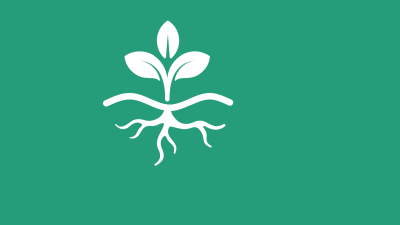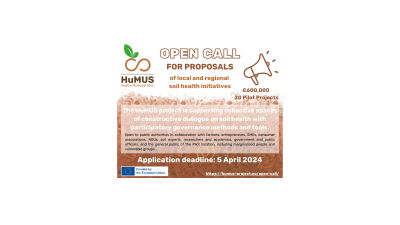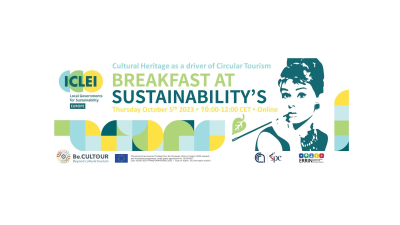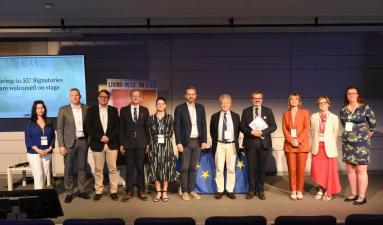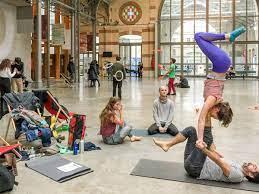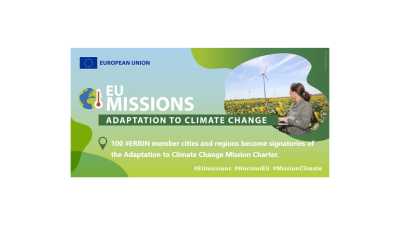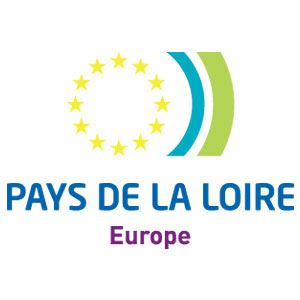
Pays de la Loire Europe is an association that represents the French region Pays de la Loire and its stakeholders in Brussels. It is the direct contact point of the Regional Council, the five departments composing the Region, as well as three cities (Angers, Saint Nazaire and La Roche-sur-Yon) and the regional Chambers (Agriculture, Commerce and Industry, Trade and crafts, …). Beyond these actors, the office in Brussels also works with clusters, Universities, research institutes and other public and private actors from the Region on various key topics relevant for R&I development: manufacturing, vegetal issues, agriculture (e.g. proteins, digital transition), circular economy, bioeconomy, offshore renewable energies, hydrogen, ICT, robotics, algae, Smart city, climate adaptation, health, cultural and creative industries, … Our key priorities at the moment are the energy and digital transitions, as well as climate adaptation, in particular in agriculture and transport but also at the urban level. Issues such as microalgae, plant-based proteins, carbon-neutral farms in agriculture, circular solutions in agrifood, water and soil management, or the development of hydrogen in Pays de la Loire remain major focuses as well.
Contact detail
-
Head of office
-
Contact person
-
Brussels Office Address
Rondpoint Schuman 14
1040 Brussels
Belgium
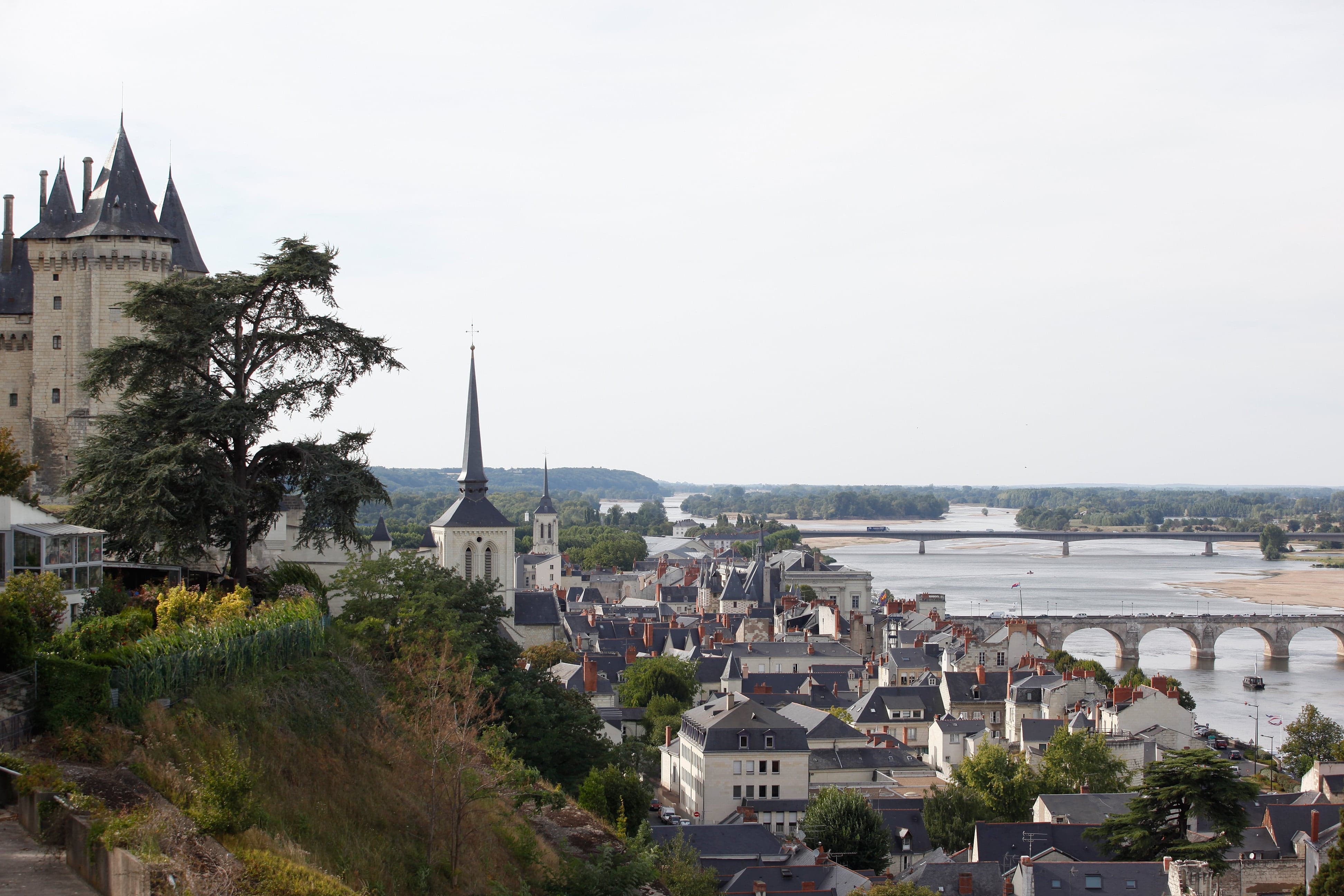
S3 Strategy
The Smart Specialisation Strategy of the Region Pays de la Loire is currently being revised but you can find below some information about the priorities of the 2014-2020 strategy. The S3 is namely divided into 6 key areas, representing 22 regional economic sectors:
- Advanced production technologies: equipment, electronic components, conception/production/recycling, manufacturing plant of the future, wood and biobased materials, etc.
- Maritime Industries: shipbuilding, marine renewable energies, marine bio-resources, and products, etc.
- Food and bio-resources: agri-food, health and nutrition, agri-food of the future, precision agriculture, sustainable agriculture, products traceability
- Informatics and professional Electronics: components, advanced materials, advanced manufacturing systems, logistics, virtual reality, etc.
- Design and Cultural and creative industries
- Tomorrow’s therapies and health: biotherapies, ageing, etc.
Strategic R&I Projects
Smart Agri Hubs
Smart Agri Hubs is a European innovative project aiming at fostering the digital transition in agriculture. Supported by 107 partners dispatched into regional clusters, it has two main objectives: supporting the development of projects and developing a network of skills through the creation of Digital Innovation Hubs.
WEBSITE>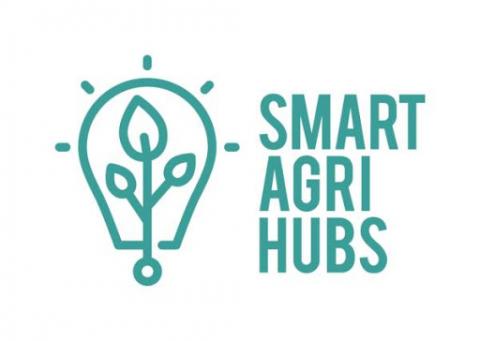
CLIPPER
The CLIPPER project brings together 7 European partners with the overall aim to develop better public policies to support the competitiveness of Small and Medium-Sized Enterprises (SMEs) working in Maritime Industries in Europe. The Pays de la Loire Regional Council coordinates the project.
WEBSITE>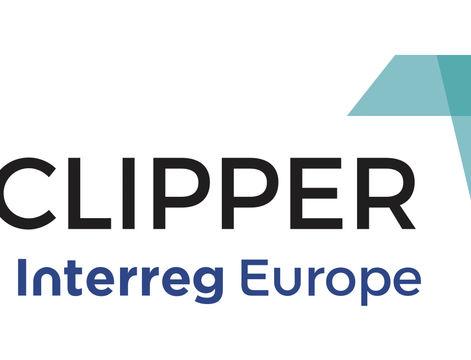
Regions4Food
The Regions4Food project brings together 7 European partners eager to work on the use of data in the food industry. Overall, the programme works on specific integration and management procedures to make the most of new economic opportunities based on information, data and cognitive technologies and promote innovation-driven growth.
WEBSITE>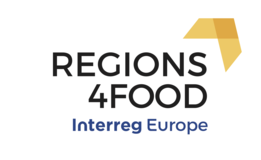
European Innovation Partnership "SOS PROTEIN"
“SOS PROTEIN” stands for “Sustain Our Self sufficiency Protein Research to Overcome the Trend of European Import Needs”. This collaborative project between the Pays de la Loire and Brittany regions supported research projects on plant-based proteins for animal feeding. Despite ending in 2020, the objective is to follow-up and keep supporting research on this topic and beyond.
WEBSITE>Ocean Energy ERA-NET Cofund
This Cofund is an initiative of eight national and regional government agencies from six European countries (France, Ireland, Portugal, Scotland, Spain and Sweden). The aim is to coordinate support for R&D in ocean energy, to encourage collaborative projects that tackle some of the key challenges identified for the sector as it progresses towards commercialisation.
WEBSITE>Latest Updates
- By Gianpiero Petruzziello
HuMUS open call for proposal - Participatory governance on soil health - Deadline Extended until 5 April
The HuMUS project has launched a cascade funding call aimed at supporting 20 pilot projects in fostering participatory governance methods to improve soil health at regional and local levels in Europe. The total budget for the HuMUS Call for Pilot proposals is €600.000, with a maximum subgrant of €30.000 (lump sum) per Pilot Project. The deadline for proposal submission has been extended until 05 April 2024.
- By Francesca Pozzebon
ERRIN members showcase good practices at ICLEI B@S event on circular cultural tourism
The last edition of ICLEI’s flagship Breakfast at Sustainability’s series took place on 5 October 2023 from 10:00-12:00 CEST , in collaboration with ERRIN and as part of the Be.CULTOUR project. On this occasion, ERRIN members had the opportunity to take the stand and showcase inspiring examples of good practices demonstrating how circular approaches to tourism, human-centred destinations, and heritage-led transformations can contribute to building a sustainable future for all.
- By Rodolphe Doité
ERRIN at the Living-in.EU Mayors’ Digital Assembly
On Thursday 15 June 2023, ERRIN participated to the first Living-in.EU Mayors Digital Assembly at the Brussels Urban Summit.
- By Anna Grimault
T'Cap association is looking for partners for two Erasmus+ adult education cooperation projects
The association "Collectif T’Cap", along with local partners (ADAPEI Loire-Atlantique, Cercle Karré and Pickup Production) are looking for partners to participate in two Erasmus+ cooperation projects in the field of adult education. The first one aims at developing a network of hybrid places mixing cultural and economic activities for less engaged audiences, while the second one targets autonomous housing for people with disabilities.
- By Lucy Hammond
100 ERRIN member cities and regions become signatories of the EU Mission for Adaptation to Climate Change Charter
During the recent European Research and Innovation Days, the European Commission announced the 2nd wave of signatories to the EU Mission for Adaptation to Climate Change Charter, with a further 100 regions and local authorities signing. Of the now 215 signatories, a staggering 100 are associated with ERRIN member cities and regions.
- By Anna Grimault
Partner Search Creative Europe - Young Europeans in Utopia
The University of Angers is actively seeking for partners for a medium-scale cooperation Creative Europe project. The aim of this project is to involve young Europeans to create and co-produce new ideas of projected utopia. Through cultural and social diversity of historical or actual concrete utopias in Europe, the generation of new ideas will allow/induce new practices between young Europeans in term of cooperation, exchanges and experimentations. The productions will be valued in transnational immersive and inclusive digital supports, disseminated and promoted, in order to become cultural and creative levers to “make in another way”/ “make otherwise” and innovate in the Europe of tomorrow.
